LILAC Mentors
Reasons to Be a Mentor
- Experience
If you are in the field of breastfeeding and lactation medicine (BFLM), you probably already spend a lot of your time teaching others. You may currently have a learner, or many of many different levels. In the past, BFLM providers would have to create many of their own materials. We’d sometimes struggle with lack of time, consensus and resources to properly train our colleagues and successors. The LILAC provides an opportunity for high-level BFLM providers to share their knowledge with dedicated, high-level learners, with the support of a curriculum, evaluation tools, and a scholarship team. You will be training the next generation of leaders!
- Resources
LILAC mentors have the same curriculum access as fellows, with up to date readings and videos by leaders in the field. If mentors complete assignments, they may also receive CME (continuing medical education) credit and L-CERPS. Library access is also available.
- Academic Appointment
LILAC mentors are offered Adjust Professorship positions in the Division of Breastfeeding and Lactation Medicine at the University of Rochester.
- Stipend
LILAC mentors, starting with Pilot Phase 2 (2023-2025 cohort), will be offered a stipend of 1/5th of the fellow's tuition, per year, for their time. The total amount will depend on the Country Category in which the fellow practices.
Required of Mentors
- We ask that LILAC mentors regularly meet with their fellows, and spend at least 2 hours monthly reviewing cases and advancing their fellow’s scholarly work.
- They are also requested to attend the fellow’s 30 minute Scholarship Oversight Committee (SOC) meetings every 6 months. This adds up to 26 hours per year.
- Mentors are invited to all class activities, attendance is optional.
Mentors
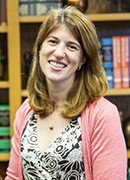 Karen Bodnar, M.D., I.B.C.L.C.
Karen Bodnar, M.D., I.B.C.L.C.
Dr. Bodnar is an Associate Clinical Professor of Pediatrics at the University of Virginia School of Medicine. She is the Medical Director of the Inova Breastfeeding and Lactation Medicine Clinic which she founded in 2018. Dr Bodnar is a founder of the North American Board of Breastfeeding and Lactation Medicine and is on the board of directors of the Academy of Breastfeeding Medicine. She co-hosts the Breastfeeding Medicine Podcast and the Clinical Case Discussion Webinar Series from iABLE (Institute for the Advancement of Breastfeeding and Lactation Education). She is a board-certified pediatrician and IBCLC who graduated from medical school and her pediatric residency at the University of Florida. She is also an Air Force Veteran, wife and mother of two teens.
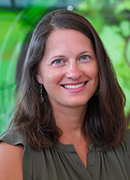 Michele Burtner, M.S.
Michele Burtner, M.S.
Associate Medical Director of Breastfeeding and Lactation Services
Michele Burtner, CNM, MS began her career as first as a labor and delivery nurse while on the pathway to becoming a midwife. Her undergraduate Bachelor of Nursing degree was completed at the University at Buffalo. After finishing the midwifery program at OHSU, she worked for a large inner city community practice in Indianapolis, proving both inpatient and outpatient midwifery care to both low and high risk women. After moving back to the Pacific Northwest, she continued working as a full scope midwife, including waterbirth, and teaching midwifery students. She moved back to Western New York in 2007 where she joined the URMC Midwifery Group at the University of Rochester. She served as Midwifery Division Director from 2013-2018. In 2021, Michele completed a Fellowship in Breastfeeding and Lactation Medicine as well as a Master’s in Public Health from the University of Rochester.
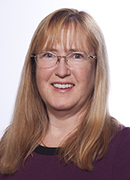 Susan Crowe, M.D.
Susan Crowe, M.D.
Dr. Susan Crowe is a Clinical Professor of Obstetrics and Gynecology at the Stanford University School of Medicine. She has been on faculty there since 1998. She has expertise in Breastfeeding and Lactation Medicine, and she serves as a member of ACOG's National Breastfeeding Expert Workgroup. She is also a Fellow of the Academy of Breastfeeding Medicine. She works on quality and safety initiatives at Lucile Packard Children’s Hospital Stanford. She speaks frequently on topics related to maternity care practices that support lactation and implementation of skin-to-skin after vaginal and Cesarean birth.
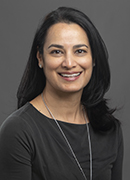 Aloka L. Patel, M.D.
Aloka L. Patel, M.D.
Dr. Aloka Patel received her BS in Biomedical Engineering and MD from Northwestern University. She completed her Pediatrics residency and Neonatal-Perinatal fellowship at Washington University. She is currently Professor of Pediatrics at Rush University where she is the Division Chief and the Research Director for Neonatology. Dr. Patel’s research has focused on identifying health and cost outcomes of human milk feedings for very preterm infants, understanding barriers to continued provision of human milk, and clinical nutritional studies in preterm infants. Dr. Patel is multi-principal investigator with Dr. Tricia Johnson for two ongoing NIH-funded studies. The first is an innovative randomized controlled trial of an economic intervention to offset costs associated with milk provision borne by mothers of very preterm infants (ReDiMOM trial), and the second is a two-year follow-up study assessing neurodevelopment, growth, adiposity, milk provision duration and economic outcomes for ReDiMOM subjects.
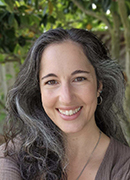 Sarah Weinstein, MN, CNM, IBCLC, PMH-C
Sarah Weinstein, MN, CNM, IBCLC, PMH-C
Sarah earned her bachelor's in integrative biology from Berkeley where she first learned about midwifery care in her reproductive biology course. She earned her BSN and graduated with her master's in nurse-midwifery from Oregon Health and Sciences University in 2014. She completed her training and started her career in the Four Corners region, and since then, she has caught babies in and out of the hospital and in rural and urban settings. Moved by the concept described by Indigenous midwife and activist Katsi Cook of mother as our "first environment," and the clear connection between the social and experiential environment and the health of families she worked with, Sarah expanded her full-scope midwifery to include breastfeeding and lactation medicine. She started a breastfeeding medicine clinic at her institution, co-founded and co-runs the breastfeeding task force, provides breastfeeding and lactation education to colleagues, residents, and students, and works with her interdisciplinary team to advocate for and provide evidence-based breastfeeding and lactation education and care. She is active in midwifery as advocacy in AZ, and is currently a member of the OBGYN faculty practice at Banner University Medicine in Tucson. She is pursuing her PhD under the guidance of Drs. Elise N. Erickson and Aleeca F. Bell.